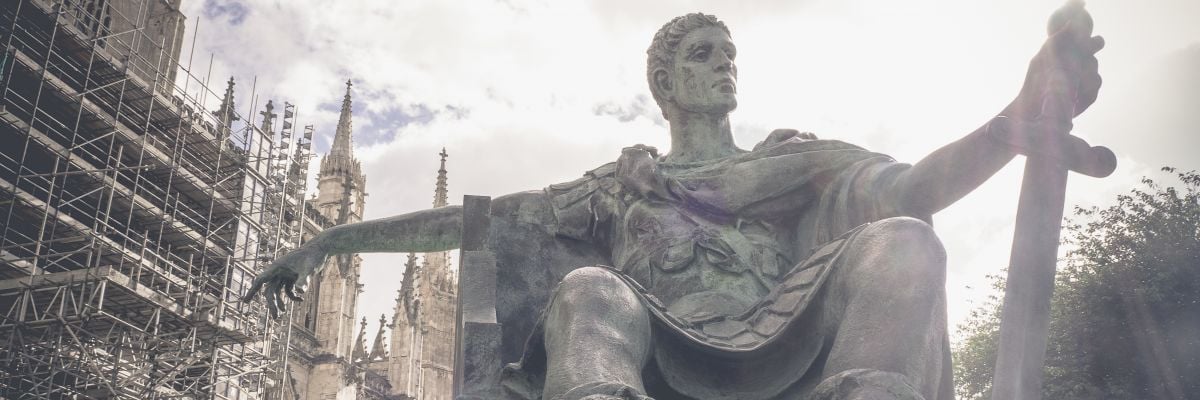
DAY 237
CHALLENGE
“The Catholic Church was created by the Emperor Constantine when he made Christianity the official religion of the Roman Empire.”
DEFENSE
Both of these claims are historically false.
Although Constantine is often credited with being the first Christian emperor, he didn’t make Christianity the official religion. What he did, together with his colleague and rival, Licinius, was issue the Edict of Milan in A.D. 313, which proclaimed religious toleration for Christianity among the other religions in the empire.
He also didn’t create the Catholic Church, which already existed in his day. Indeed, it had already been known by that name for more than 200 years. Thus, writing around A.D. 110, St. Ignatius of Antioch stated: “Wherever the bishop shall appear, there let the multitude also be; even as, wherever Jesus Christ is, there is the Catholic Church” (Letter to the Smyrneans 8).
The fact that Ignatius introduces the phrase “Catholic Church” without stopping to explain it indicates it was already in use, and he could expect people in the distant church of Smyrna to understand what it meant. This wide circulation therefore must have begun in the second half of the first century.
The meaning of the Greek term for “Catholic” (katholikos) is “universal” (from kata holos, “according to the whole”). It was introduced as a way of identifying the universal Church established by Christ (Matt. 16:18), as distinct from local congregations. “Very quickly, however, in the latter half of the second century at latest, we find it conveying the suggestion that the Catholic is the true Church as distinct from the heretcal congregations” (J.N.D. Kelly, Early Christian Doctrines, 5th ed., 190).
“The Catholic Church” was thus simply the common way of refer- ring to the original Church established by Christ, not Constantine.
Those who make this objection frequently claim that, at the time of Constantine, various doctrinal changes were introduced that are characteristic of the Catholic Church and that separate it from apostolic Christianity. However, no doctrinal changes were introduced. Even the definition of the divinity of Christ, which occurred during Constantine’s reign at the First Council of Nicaea (A.D. 325), was an affirmation of previous Church teaching.
TIP
On the doctrinal continuity of the Catholic Church from the first century onward, see Jimmy Akin, The Fathers Know Best.



